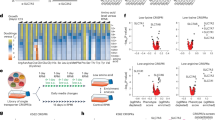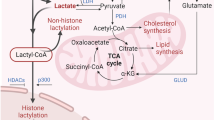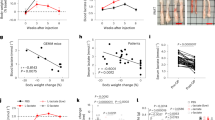Abstract
Cancer cells mainly metabolize by glycolysis (the Warburg effect) and are better adapted to resist metabolic stress. Metastasis-associated in colon cancer-1 (MACC1) is an oncogene promoting gastric cancer (GC) growth and metastasis, and its expression positively correlates with GC progression. However, it is unknown why MACC1 elevates with GC progression and what is its role in cancer metabolism. In this study, we discovered that MACC1 expression was significantly upregulated via adenosine monophosphate-activated protein kinase signaling in response to glucose deprivation-induced metabolic stress. Clinical observation demonstrates that MACC1 expression was higher in advanced stage GC. MACC1 expression was proved to be positively correlated with the maximum standardized uptake value of 18F-deoxyglucose in the patients, and MACC1 enhanced 18F-deoxyglucose uptake in GC cells and the xenografts. The underlying mechanism was that MACC1 promoted the Warburg effect by upregulating the activities and expressions of a series of glycolytic enzymes, including hexokinase, pyruvate dehydrogenase kinase and lactate dehydrogenase, in GC cells. This metabolic shift enhanced cell viability and resistance to apoptosis by facilitating ATP generation, reducing the reactive oxygen species production and stabilizing the mitochondrial membrane potential. In contrast, MACC1-silenced or the Warburg effect-blocked GC cells were more vulnerable to metabolic stress. In conclusion, metabolic stress is one of the mechanisms that elevate MACC1 expression in GC, and MACC1 upregulation compensatively ensures GC growth against metabolic stress by facilitating the Warburg effect.
This is a preview of subscription content, access via your institution
Access options
Subscribe to this journal
Receive 50 print issues and online access
$259.00 per year
only $5.18 per issue
Buy this article
- Purchase on Springer Link
- Instant access to full article PDF
Prices may be subject to local taxes which are calculated during checkout









Similar content being viewed by others
References
Nieman KM, Kenny HA, Penicka CV, Ladanyi A, Buell-Gutbrod R, Zillhardt MR et al. Adipocytes promote ovarian cancer metastasis and provide energy for rapid tumor growth. Nat Med 2011; 17: 1498–1503.
Yang S, Wang X, Contino G, Liesa M, Sahin E, Ying H et al. Pancreatic cancers require autophagy for tumor growth. Genes Dev 2011; 25: 717–729.
Hirayama A, Kami K, Sugimoto M, Sugawara M, Toki N, Onozuka H et al. Quantitative metabolome profiling of colon and stomach cancer microenvironment by capillary electrophoresis time-of-flight mass spectrometry. Cancer Res 2009; 69: 4918–4925.
Kokoszynska K, Krynski J, Rychlewski L, Wyrwicz LS . Unexpected domain composition of MACC1 links MET signaling and apoptosis. Acta Biochim Pol 2009; 56: 317–323.
Koppenol WH, Bounds PL, Dang CV . Otto Warburg's contributions to current concepts of cancer metabolism. Nat Rev Cancer 2011; 11: 325–337.
Jeon SM, Chandel NS, Hay N . AMPK regulates NADPH homeostasis to promote tumour cell survival during energy stress. Nature 2012; 485: 661–665.
Keller KE, Tan IS, Lee YS . SAICAR stimulates pyruvate kinase isoform M2 and promotes cancer cell survival in glucose-limited conditions. Science 2012; 338: 1069–1072.
Yun J, Rago C, Cheong I, Pagliarini R, Angenendt P, Rajagopalan H et al. Glucose deprivation contributes to the development of KRAS pathway mutations in tumor cells. Science 2009; 325: 1555–1559.
Huber AL, Lebeau J, Guillaumot P, Petrilli V, Malek M, Chilloux J et al. p58(IPK)-mediated attenuation of the proapoptotic PERK-CHOP pathway allows malignant progression upon low glucose. Mol Cell 2013; 49: 1049–1059.
Gao M, Liang J, Lu Y, Guo H, German P, Bai S et al. Site-specific activation of AKT protects cells from death induced by glucose deprivation. Oncogene 2014; 33: 745–755.
Wu CA, Chao Y, Shiah SG, Lin WW . Nutrient deprivation induces the Warburg effect through ROS/AMPK-dependent activation of pyruvate dehydrogenase kinase. Biochim Biophys Acta 2013; 1833: 1147–1156.
Stein U, Walther W, Arlt F, Schwabe H, Smith J, Fichtner I et al. MACC1, a newly identified key regulator of HGF-MET signaling, predicts colon cancer metastasis. Nat Med 2009; 15: 59–67.
Meng F, Li H, Shi H, Yang Q, Zhang F, Yang Y et al. MACC1 down-regulation inhibits proliferation and tumourigenicity of nasopharyngeal carcinoma cells through Akt/beta-catenin signaling pathway. PLoS One 2013; 8: e60821.
Xie C, Wu J, Yun J, Lai J, Yuan Y, Gao Z et al. MACC1 as a prognostic biomarker for early-stage and AFP-normal hepatocellular carcinoma. PLoS One 2013; 8: e64235.
Wang L, Wu Y, Lin L, Liu P, Huang H, Liao W et al. Metastasis-associated in colon cancer-1 upregulation predicts a poor prognosis of gastric cancer, and promotes tumor cell proliferation and invasion. Int J Cancer 2013; 133: 1419–1430.
Galimi F, Torti D, Sassi F, Isella C, Cora D, Gastaldi S et al. Genetic and expression analysis of MET, MACC1, and HGF in metastatic colorectal cancer: response to met inhibition in patient xenografts and pathologic correlations. Clin Cancer Res 2011; 17: 3146–3156.
Xiao GH, Jeffers M, Bellacosa A, Mitsuuchi Y, Vande Woude GF, Testa JR . Anti-apoptotic signaling by hepatocyte growth factor/Met via the phosphatidylinositol 3-kinase/Akt and mitogen-activated protein kinase pathways. Proc Natl Acad Sci USA 2001; 98: 247–252.
Levine AJ, Puzio-Kuter AM . The control of the metabolic switch in cancers by oncogenes and tumor suppressor genes. Science 2010; 330: 1340–1344.
Hsu PP, Sabatini DM . Cancer cell metabolism: Warburg and beyond. Cell 2008; 134: 703–707.
Gogvadze V, Orrenius S, Zhivotovsky B . Mitochondria in cancer cells: what is so special about them? Trends Cell Biol 2008; 18: 165–173.
Zaugg K, Yao Y, Reilly PT, Kannan K, Kiarash R, Mason J et al. Carnitine palmitoyltransferase 1C promotes cell survival and tumor growth under conditions of metabolic stress. Genes Dev 2011; 25: 1041–1051.
Li G, Ci W, Karmakar S, Chen K, Dhar R, Fan Z et al. SPOP promotes tumorigenesis by acting as a key regulatory hub in kidney cancer. Cancer Cell 2014; 25: 455–468.
Le A, Cooper CR, Gouw AM, Dinavahi R, Maitra A, Deck LM et al. Inhibition of lactate dehydrogenase A induces oxidative stress and inhibits tumor progression. Proc Natl Acad Sci USA 2010; 107: 2037–2042.
Dong C, Yuan T, Wu Y, Wang Y, Fan TW, Miriyala S et al. Loss of FBP1 by Snail-mediated repression provides metabolic advantages in basal-like breast cancer. Cancer Cell 2013; 23: 316–331.
Wolf A, Agnihotri S, Micallef J, Mukherjee J, Sabha N, Cairns R et al. Hexokinase 2 is a key mediator of aerobic glycolysis and promotes tumor growth in human glioblastoma multiforme. J Exp Med 2011; 208: 313–326.
Wang G, Kang MX, Lu WJ, Chen Y, Zhang B, Wu YL . MACC1: A potential molecule associated with pancreatic cancer metastasis and chemoresistance. Oncol Lett 2012; 4: 783–791.
Zhao C, Yasumura D, Li X, Matthes M, Lloyd M, Nielsen G et al. mTOR-mediated dedifferentiation of the retinal pigment epithelium initiates photoreceptor degeneration in mice. J Clin Invest 2011; 121: 369–383.
Pate KT, Stringari C, Sprowl-Tanio S, Wang K, TeSlaa T, Hoverter NP et al. Wnt signaling directs a metabolic program of glycolysis and angiogenesis in colon cancer. EMBO J; 2014 e-pub ahead of print May 2014; doi:2010.15252/embj.201488598.
Falck Miniotis M, Arunan V, Eykyn TR, Marais R, Workman P, Leach MO et al. MEK1/2 inhibition decreases lactate in BRAF-driven human cancer cells. Cancer Res 2013; 73: 4039–4049.
Mimeault M, Batra SK . Altered gene products involved in the malignant reprogramming of cancer stem/progenitor cells and multitargeted therapies. Mol Aspects Med 2013; e-pub ahead of print August 2013; doi:2010.1016/j.mam.2013.2008.2001.
Gatenby RA, Gillies RJ . Why do cancers have high aerobic glycolysis? Nat Rev Cancer 2004; 4: 891–899.
Bonnet S, Archer SL, Allalunis-Turner J, Haromy A, Beaulieu C, Thompson R et al. A mitochondria-K+ channel axis is suppressed in cancer and its normalization promotes apoptosis and inhibits cancer growth. Cancer Cell 2007; 11: 37–51.
Acknowledgements
This work was supported by the National Natural Science Foundation of China (31271564 to WL), Guangzhou science and technology plan (134600108 to WL), the Team Program of Natural Science Foundation of Guangdong Province (S2011030003134 to WL and YL) and the Special Foundation for National Clinical Specialties of China (to Department of Oncology, Nanfang Hospital). We thank Professor Quanshi Wang and Professor Hubing Wu for helping clinical PET data acquisition, Dr Yanjiang Han for assistance with microPET, Professor Zhenhua Ding for assistance with γ-radiation activity monitor and Jingwen Zhang for language editing. QW, HW and YH are from PET Center, JZ is from Department of Cardiology, Nanfang Hospital and ZD is from Department of Radiation Medicine, School of Public Health and Tropical Medicine, Southern Medical University.
Author information
Authors and Affiliations
Corresponding author
Ethics declarations
Competing interests
The authors declare no conflict of interest.
Additional information
Supplementary Information accompanies this paper on the Oncogene website
Supplementary information
Rights and permissions
About this article
Cite this article
Lin, L., Huang, H., Liao, W. et al. MACC1 supports human gastric cancer growth under metabolic stress by enhancing the Warburg effect. Oncogene 34, 2700–2710 (2015). https://doi.org/10.1038/onc.2014.204
Received:
Revised:
Accepted:
Published:
Issue Date:
DOI: https://doi.org/10.1038/onc.2014.204
This article is cited by
-
Involvement of redox signalling in tumour cell dormancy and metastasis
Cancer and Metastasis Reviews (2023)
-
STK25 enhances hepatocellular carcinoma progression through the STRN/AMPK/ACC1 pathway
Cancer Cell International (2022)
-
ATXN2L upregulated by epidermal growth factor promotes gastric cancer cell invasiveness and oxaliplatin resistance
Cell Death & Disease (2019)
-
Role of purines in regulation of metabolic reprogramming
Purinergic Signalling (2019)
-
The lncRNA MACC1-AS1 promotes gastric cancer cell metabolic plasticity via AMPK/Lin28 mediated mRNA stability of MACC1
Molecular Cancer (2018)



